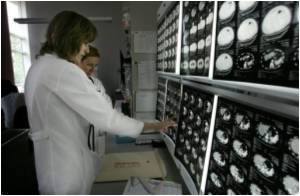Changes to the gut microbiota could lead to new treatments for bowel diseases like ulcerative colitis and Crohn's disease, claim researchers.

An attractive alternative to these approaches is the transplantation of gut microbiota from a healthy donor to an ill recipient. Several case reports of biotherapy by transplantation of fecal microbiota have revealed promising results, but the effectiveness of transplantation alone or in combination with other treatments have not been rigorously examined.
Using rats as a model system, an international team of researchers from Spain and the United States have now employed metagenomics to analyze the extent to which gut microbial diversity can be reshaped by transplantation alone or in combination with antibiotic treatment. The team sampled and pooled contents of the cecum from several donor rats, and introduced this bacteria-rich cecal material into the gut of recipient rats, some of which had also received antibiotic treatment to reduce the endogenous bacterial load.
By sequencing and analyzing microbial DNA present in the feces of recipient rats, the group could identify bacteria present and monitor changes in microbial diversity induced by the donor microbiota. Surprisingly, they found that not only could gut microbial diversity be successfully reshaped to resemble that of the donor, but that these changes are long-term, persisting three months after transplantation.
Further, although the researchers observed a reduction in microbial diversity following antibiotic pre-treatment of the recipient, consistent with previous findings, antibiotic treatment did not promote the establishment of the donor community, as hypothesized. In fact, their data suggests it interfered with the reshaping effect of the transplantation.
"Our work showed that it is possible to introduce new species in the intestinal microbial composition … without the need of eliminating first the endogenous bacteria by antibiotic treatment," said Chaysavanh Manichanh of the University Hospital Vall d'Hebron Research Institute (Barcelona, Spain) and first author of the study. The authors explained that because this insight is counterintuitive, it will be extremely valuable to researchers designing novel approaches using bacteriotherapy as an effective treatment for intestinal diseases.
Source-Eurekalert
 MEDINDIA
MEDINDIA



 Email
Email







